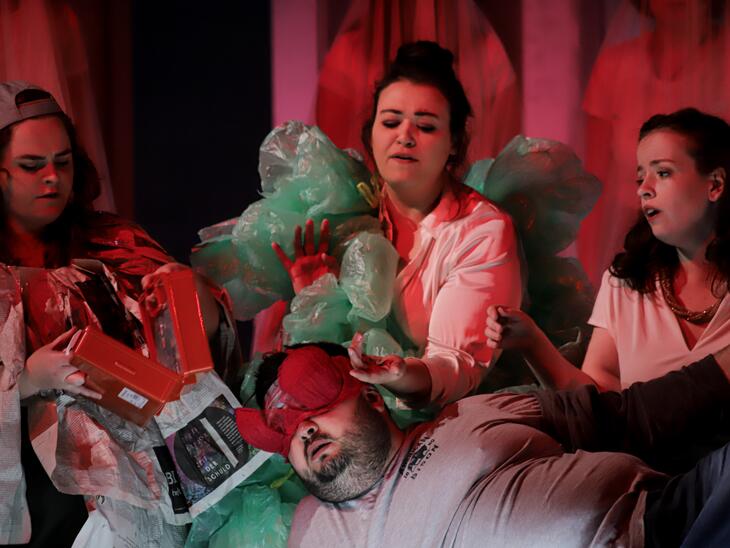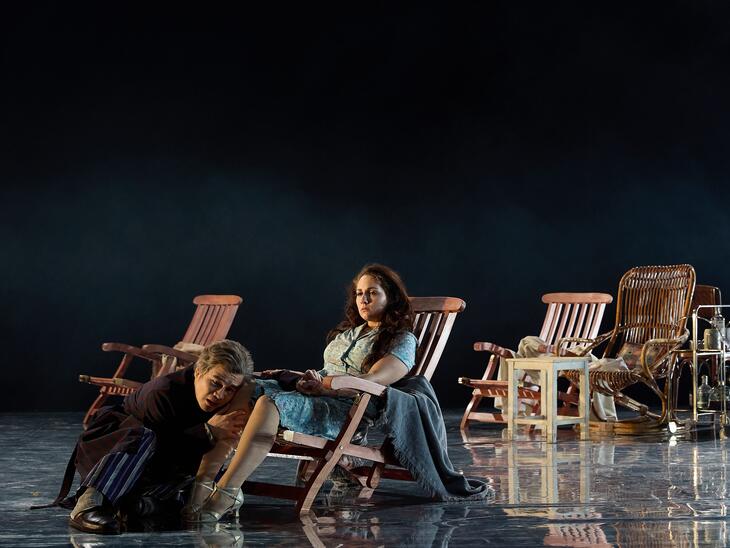With this magic opera in 1735, Handel once again builds on his earlier triumphs in London. The libretto is borrowed from the crusader epic "Orlando furioso" by Ariost and revolves around the Circe myth, also already worked on by Homer, in which stranded heroes are first made happy with love by a sorceress and then transformed into animals. "I have the impression that the strictly emblematic characteristics of the baroque dramaturgy give way in "Alcina" in favor of a dramatic meaningfulness. As far as the genre is concerned, Handel combines this approach, which is modern for us, with a recourse: he turns again to the magic theme, which was almost frowned upon. This allows him to break open the canon, to give space to the irrational, the fantastic and the abysmal, the despair. The piece is about doubt in the world, about the insolubility of things. For this deeply melancholic approach Handel finds again and again new forms of expression - he leaves the terrain of predictability.... " (Alexander von Pfeil)




